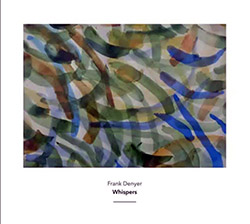
Five idiosyncratic compositions by English composer Frank Denyer with performers including The Barton Workshop, Elisabeth Smalt, Juliet Fraser, Kiku Day and Frank Denyer himself, using shakuhachi, voice, muted strings, percussion and an axe striking a block of wood.
Out of Stock
Quantity in Basket: None
Log In to use our Wish List
Shipping Weight: 3.00 units
Sample The Album:
Frank Denyer-composer, voice, percussion
Elisabeth Smalt-violin, viola
Kiku Day-Shakuhachi, voice, percussion
John Anderson-bass clarinet
Jamie Swale-bass drum
Anna Magda de Geus-cello
Dedalus Ensemble-Barton Workshop
Jos Zwaanenburg-bass flute
James Fulkerson-trombone
Marieke Keser-violin
Jamie Man-conducto
r Dario Calderone-doublebass
Pepe Garcia Rodriguez-percussion
Benjamin Marquise Gilmore-violin
Juliet Fraser-voice
Click an artist name above to see in-stock items for that artist.
Label: Another Timbre
Catalog ID: at82
Squidco Product Code: 20552
Format: CD
Condition: New
Released: 2015
Country: UK
Packaging: Cardboard Gatefold
Whispers (2010) Recorded at Brunel University, London, September 16 2012
Woman with Jinashi Shakuhachi (2008) Recorded in Amsterdam, October 10 2011
Riverine Delusions (2007) Recorded in Amsterdam, April 19 2009
Two Voices with Axe (2010) Recorded in Amsterdam, August 19 2013
A Woman Singing (2009) Recorded in Amsterdam, August 18 2013
"The experience of listening to Frank Denyer's music is extraordinary, quite distinct from other aspects of our contemporary musical lives. His music manifests an exquisite sensitivity to sound, often unusual or fragile sounds; his compositions are more concerned with what can be heard than with an interest in systems, or drama, or "ideas". And while these sounds sometimes seem to embody a covert narrative of sorts, as though a story is hiding, waiting to be told, any such narratives are never made explicit. This leaves the listener free to concentrate on the highly original melodic lines, the harmonies and the unique tone colours of Denyer's work, while speculating, if desired, about possible scenarios that may lie behind. This disc, the eighth devoted entirely to his music, collects three solo and two ensemble pieces, and forms a portrait of his recent work, from the years 2007-10.
Whispers, for solo voice with ancillary instruments and offstage muted violin, marks a radical (and, so far, a one-off) change in Denyer's working methods. Whereas his pieces generally emerge from a long gestation period, this one arrived suddenly; he began by writing down a few phrases one morning, not thinking in terms of longer spans. About five of its movements were composed in this way, on the day he began work. It is the first piece of his to be a mosaic of short movements, some very short indeed. Denyer found that the gaps between the individual movements needed to be very exact, some of them quite long, so by trial and error he determined a series of lengths which are specified in the final score. Like the earlier Riverine Delusions, but in a very different way, this piece led him to think of time very differently than in his earlier music. The piece was not specifically intended for his own voice, but Denyer's performance here offers a marvellous sense of immediacy, as though the pieces are coming into existence as we listen. The very quiet, fragmentary music of an offstage muted violin is heard unexpectedly in piece fourteen, as though briefly opening up the performance space to a world outside.
Woman with Jinashi Shakuhachi is the second in a set of pieces intended for solo female performer. In 2004 Denyer composed a solo work for the Dutch viola player Elisabeth Smalt entitled Woman, Viola and Crow, in which the performer also has to sing, shake a set of rattles worn on her back, make footsteps of a quite specific timbre, and imitate (vocally) the call of a crow. Five years later, responding to a request from shakuhachi player Kiku Day, he wrote the second of what would become a set of four works with a woman performer in mind. Part of the stimulus was that Day played the jinashi shakuhachi, the original shakuhachi associated with mendicant Buddhist priests, made without any lacquer on the inside, and which women were traditionally forbidden from playing. He especially loved the very soft notes on the instrument, similar in quality to the human voice, and so the player also sings and, in addition, makes percussive taps with a thimble on the body of the instrument. In the context of Denyer's output, this marks the drawing of a line after the many compositions he wrote for the shakuhachi master Yoshikazu Iwamoto in the decades up to 1999 (four of them collected on Another Timbre at03): Woman with Jinashi Shakuhachi takes a new approach to an instrument that has featured extensively in Denyer's work.
Riverine Delusions is the earliest of the pieces recorded here, and was the last piece Denyer composed for the Amsterdam-based ensemble The Barton Workshop (with which he had performed, as pianist, for more than fifteen years) before the ensemble's demise. But the work is less an act of closure than of new beginnings. A more flexible attitude to time is one aspect of this; atypically for Denyer, the score includes a few passages of unsynchronised material. So too is the striving for a more linear continuity, for ever-longer spans of music. The piece began life as a trio for flute, clarinet and trombone, but Denyer found it unsatisfactory in that form, so he rewrote it, adding violin and cello (both muted) and percussion. The work, the composer says, contains "some of the subtlest things I've done": one example is the quiet, unison microtonal melody on bass flute and bass clarinet, so accurately played here that it seems like only one instrument. Like a river, perhaps, the piece has no clear beginning and end, as though a passing fragment of a more continuous music.
The ensemble piece Two Voices with Axe calls for three different types of sound source: two voices (female and male), an ensemble of five instrumentalists, and an eighth performer who slices into wood with a large axe. While these three elements are sonically distinct, the piece finds all manner of connections and dialogues between them. Quite unlike the music that surrounds it, the axe is a loud and even a violent presence. No two sounds produced by the interaction of axe blade and wood will ever be the same, hence yielding a range of timbral unpredictability. The other percussion, in contrast, while occasionally echoing the axe with gentle knocking sounds, is wholly different in function and sonority. The vocal writing, by extending the female voice downwards and the male voice upwards, makes them at times indistinguishable, so that it is not always clear which singer is producing any given sound. But just as significant as its extraordinary timbral world is the melodic nature of Two Voices with Axe; the concern to make long melodic lines has been a recurrent feature of Denyer's work for over four decades.
The closing work, A Woman Singing, is the fourth in Denyer's series of works for female performer. Here the singer must strive for what he calls a "painfully intimate tone of voice", almost as though she were singing to herself. Heard in this way, the work is a stream of consciousness in which the very gentle sounds - as though the performer were engaged in another task while softly singing - are occasionally interrupted by words, like fragments of an inner monologue. In concert, the piece would at times hover on the threshold of audibility. The special intimacy afforded by CD, where we as listeners can feel very close to the sounds, gives us privileged access to the very special tones of voice that characterise Denyer's remarkable output."-Bob Gilmore

The Squid's Ear!
Artist Biographies
• Show Bio for Frank Denyer "Frank Denyer is an English composer whose brilliantly coloured and imaginatively rich compositions fall between several and into none of the accepted categories of contemporary music. Born in London in 1943, he was a chorister at Canterbury Cathedral by the age of nine, the director of the experimental music ensemble Mouth of Hermes in London at the age of twenty-five, and a Doctoral student in ethnomusicology at Wesleyan University, Connecticut at the age of thirty. He has lived and worked in east Africa and India. Denyer's music is distinguished by a keen sensitivity to sound. Each of his works is written for a unique combination of instruments, more often than not a combination that no composer has dreamed of before. Each work finds its own individual form, laying down the path for its journey as it proceeds. In some cases even such basic musical materials as the scales and the tuning system are invented from scratch.This music is handmade in every detail; it is engaged in a complex process of affirmation and negation, accepting no easy solutions. For Denyer, a fine pianist who has composed not one note for his own instrument since his student days, the whole question of musical instruments is a central one. His compositions present an astonishingly varied array of sound sources - new instruments of his own invention, adapted instruments, instruments of non Western traditions, rare or virtually extinct instruments, and conventional Western instruments. This whole concern with what his friend Morton Feldman called 'the instrumental factor' is not a postmodern mixing-and-matching of instruments from different 'ethnic' traditions: rather, his work suggests that all instruments bear the imprint of the tradition of which they are a part, whether that tradition be nascent, mature or decaying, and that at the beginning of the twenty-first century we cannot afford to be complacent about which musical traditions we consider to be 'ours.' Neither is his music that of a composer making do with ready-mades or whatever lies to hand (like Cage's percussion ensemble works of the 1930s and early 1940s). Nor, at the other extreme, does one have the sense of the composer gradually assembling an instrumentarium of his own, creating the illusion of an alternative musical universe (like Harry Partch): for one thing, Denyer's assembly of new instruments hardly ever plays together; for another, they rarely recur from one work to the next - each new composition wipes the slate clean and starts afresh. The instruments are like flowers that suddenly spring up between the cracks in a wall; they seem to be there because the opportunity has arisen for them to exist, to fill the gaps between isolated islands of instrumental sound. Denyer's concern with musical instruments can also be seen as a metaphor for the larger question of what can be salvaged, artistically, from the chaos of civilization as we begin our new century. Compositions like A Monkey's Paw (1987-88) and Finding Refuge in the Remains (1992) confront this central issue - the sense of new life emerging from a morass of dead or decaying matter - an urgent issue for him both compositionally and culturally." ^ Hide Bio for Frank Denyer • Show Bio for Elisabeth Smalt Elisabeth Smalt is a Modern Classical living in Amsterdam, Noord-Holland, Netherlands. She is a member of The Barton Workshop, Musica ad Rhenum, Nepomuk Fortepiano Quintet, Oxalys, Trio Scordatura, and Zephyr Quartet. ^ Hide Bio for Elisabeth Smalt • Show Bio for Dedalus Ensemble "Founded in 1996 by Didier Aschour, Dedalus is a set of contemporary music established in Montpellier since 2011. Dedalus is together associated with the GMEA, National Center of Music Creation Albi-Tarn. His repertoire is based on free instrumental scores from contemporary North American and European experimental music from the 1960s to the present. The ensemble performs in Europe and the United States, including the Instants Chavirés, Roulette (NYC), and in festivals such as Music We'd Like to Hear (London), Musique Action (Vandoeuvre-lès-Nancy) Angelica (Bologna), Elektricity (Reims) ... His concerts and recordings have been hailed by critics around the world (New York Times, The Wire, Movement, Revue & Corrigée ...)" ^ Hide Bio for Dedalus Ensemble • Show Bio for Jos Zwaanenburg "Jos Zwaanenburg (b. 1958, Bovenkarspel). Dutch composer of mostly chamber and vocal works that have been performed in Europe and North America; he is also active as a flutist. Mr. Zwaanenburg studied composition with Wim de Ruiter and flute with Joost Tromp at the Conservatorium van Amsterdam, where he graduated with distinction in 1985. As a flutist, he has performed contemporary music throughout the Americas and Europe. He has undertaken research into extended techniques for the flute, which led to the development of the open-hole alto flute in collaboration with Eva Kingma and Dirk Kuiper in 1986-87. He later founded the experimental-rock band KXTAHPAPH in 1995 and collaborated regularly with the ensemble for contemporary music the Barton Workshop in Amsterdam. He has lectured at the Conservatorium van Amsterdam and as a guest at Oxford Brookes University, where he is also a research associate. He has given lectures, masterclasses and workshops throughout the world." ^ Hide Bio for Jos Zwaanenburg • Show Bio for Juliet Fraser "Juliet Fraser was educated at the Purcell School as a first-study oboist and then at Cambridge University where she read Music and History of Art. It was whilst a student there that she started singing, in the chapel choir of Clare College; subsequently she sang with professional choirs such as Polyphony, Tenebrae, the Monteverdi Choir, The King's Consort, The Tallis Scholars and BBC Singers. In early music, she has worked with European consorts Ensemble Polyharmonique and Gli Angeli Genève. She was a regular member of the soloists of Collegium Vocale Gent, directed by Philippe Herreweghe, for six years, performing and recording Renaissance polyphony by Lassus, Vitoria, Gesualdo and Byrd. In new music, Juliet has performed as a soloist with Klangforum Wien, ICTUS, Plus-Minus, We Spoke: New Music Company, London Sinfonietta and BBC Scottish Symphony Orchestra in festivals such as hcmf//, Tectonics Glasgow, Transit 20/21, Donaueschinger Musiktage, MaerzMusik and Wien Modern. Recently, she has created duo projects with pianist Mark Knoop and percussionist Maxime Echardour. She has premièred well over 100 works, many of which have been written for her, working particularly closely with composers Michael Finnissy, Bernhard Lang, Rebecca Saunders, Stefano Gervasoni, Frank Denyer, Christopher Fox, Matthew Shlomowitz, Cassandra Miller and Andrew Hamilton. Juliet is principal soprano of EXAUDI, the acclaimed contemporary music vocal ensemble, which she founded in 2002 with composer/conductor James Weeks and with whom she makes regular appearances at major European festivals such as Aldeburgh, Spitalfields, hcmf//, ManiFeste, Festival d'Automne, Ars Musica, Wittener Tage and Darmstadt Ferienkurse. Opera roles include Neige in Catherine Kontz's NEIGE at Grand Théatre de Luxembourg (2013), Tina in Limbus Limbo by Stefano Gervasoni at Musica Strasbourg, Automne en Normandie, Opera de Reims and Opera Comique, Paris (2012), and Grace Hartigan in Larry Goves's I do this I do that (2011). Juliet has been nominated twice for an RPS Award in the Singer category and is currently supported by Aldeburgh Music's Open Space scheme. Her first dedicated solo disc, a recording of Morton Feldman's Three Voices, was released on the HatHut label in November 2016." ^ Hide Bio for Juliet Fraser
7/7/2025
Have a better biography or biography source? Please Contact Us so that we can update this biography.
7/7/2025
Have a better biography or biography source? Please Contact Us so that we can update this biography.
7/7/2025
Have a better biography or biography source? Please Contact Us so that we can update this biography.
7/7/2025
Have a better biography or biography source? Please Contact Us so that we can update this biography.
7/7/2025
Have a better biography or biography source? Please Contact Us so that we can update this biography.
Track Listing:
1. Riverline Delusions 8:42
2. Two Voices With Axe 14:00
3. Whispers 1:34
4. Whispers 1:20
5. Whispers 1:29
6. Whispers 0:42
7. Whispers 0:56
8. Whispers 0:28
9. Whispers 1:36
10. Whispers 0:26
11. Whispers 1:04
12. Whispers 1:29
13. Whispers 1:05
14. Whispers 0:53
15. Whispers 1:23
16. Whispers 2:30
17. Whispers 1:37
18. Whispers 1:08
19. Whispers 0:54
20. A Woman Singing 11:54
21. Woman With Jinashi Shakihachi 11:19
Compositional Forms
Electro-Acoustic
Unusual Vocal Forms
Large Ensembles
New in Compositional Music
Search for other titles on the label:
Another Timbre.

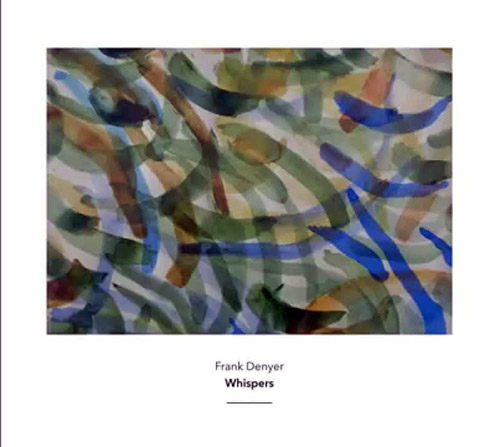
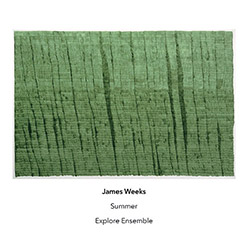
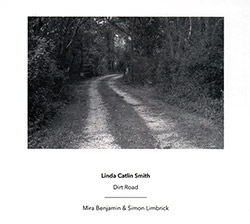


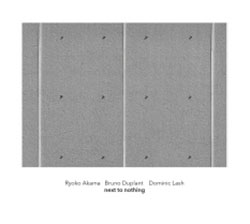



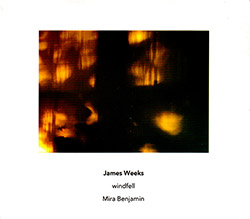












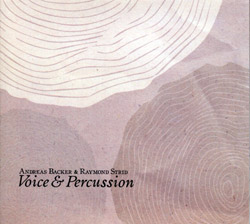










![+DOG+: The Light Of Our Lives [2 CDs]](https://www.teuthida.com/productImages/misc4/36009.jpg)


![Parker, Evan / Jean-Marc Foussat: Insolence [VINYL]](https://www.teuthida.com/productImages/misc4/36398.jpg)










![Deupree, Jerome / Sylvie Courvoisier / Lester St. Louis / Joe Morris: Canyon [2 CDs]](https://www.teuthida.com/productImages/misc4/36404.jpg)


![Eternities: Rides Again [CASSETTE]](https://www.teuthida.com/productImages/misc4/36247.jpg)

![Lopez, Francisco: Untitled (2021-2022) [2 CDs]](https://www.teuthida.com/productImages/misc4/36438.jpg)




![Eventless Plot | Haarvol: The Subliminal Paths [CASSETTE + DOWNLOAD]](https://www.teuthida.com/productImages/misc4/36232.jpg)







![Eventless Plot | Francesco Covarino: Methexis [CASSETTE + DOWNLOAD]](https://www.teuthida.com/productImages/misc4/36231.jpg)



![Das B (Mazen Kerbaj / Mike Majkowski / Magda Mayas / Tony Buck): Love [VINYL]](https://www.teuthida.com/productImages/misc4/36329.jpg)



![Hemphill Stringtet, The: Plays the Music of Julius Hemphill [VINYL]](https://www.teuthida.com/productImages/misc4/36409.jpg)









![Money : Money 2 [2 CDs]](https://www.teuthida.com/productImages/misc4/35894.jpg)




![Klinga, Erik: Elusive Shimmer [VINYL]](https://www.teuthida.com/productImages/misc4/36258.jpg)
![CHANGES TO blind (Phil Zampino): Volume 9 - I Wave on a Fine Vile Mist [CD + DOWNLOAD]](https://www.teuthida.com/productImages/misc4/36061.jpg)

![Wallmart / Rubbish: Asset Protection [split CD]](https://www.teuthida.com/productImages/misc4/35900.jpg)


![+Dog+: The Family Music Book Vol. 5 [2 CDs]](https://www.teuthida.com/productImages/misc4/35897.jpg)
![Kuvveti, Deli : Kuslar Soyledi [CASSETTE w/ DOWNLOAD]](https://www.teuthida.com/productImages/misc4/36107.jpg)

![Nakayama, Tetsuya: Edo Wan [CASSETTE w/ DOWNLOAD]](https://www.teuthida.com/productImages/misc4/36105.jpg)

![Brown, Dan / Dan Reynolds: Live At The Grange Hall [unauthorized][CASSETTE]](https://www.teuthida.com/productImages/misc4/36245.jpg)








![Palestine, Charlemagne / Seppe Gebruers: Beyondddddd The Notessssss [VINYL]](https://www.teuthida.com/productImages/misc4/36206.jpg)
![Palestine, Charlemagne / Seppe Gebruers: Beyondddddd The Notessssss [NEON GREEN VINYL]](https://www.teuthida.com/productImages/misc4/36207.jpg)

![Laubrock, Ingrid: Purposing The Air [2 CDs]](https://www.teuthida.com/productImages/misc4/35639.jpg)

![Yoko, Ono / The Great Learning Orchestra: Selected Recordings From Grapefruit [2 CDs]](https://www.teuthida.com/productImages/misc4/35841.jpg)









![Zorn, John / JACK Quartet: The Complete String Quartets [2 CDs]](https://www.teuthida.com/productImages/misc4/35609.jpg)

![Lonsdale, Eden: Dawnings [2 CDs]](https://www.teuthida.com/productImages/misc4/35480.jpg)



![Sorry For Laughing (G. Whitlow / M. Bates / Dave-Id / E. Ka-Spel): Rain Flowers [2 CDS]](https://www.teuthida.com/productImages/misc4/35985.jpg)

![Rolando, Tommaso / Andy Moor : Biscotti [CASSETTE w/ DOWNLOADS]](https://www.teuthida.com/productImages/misc4/36106.jpg)


![Electric Bird Noise / Derek Roddy: 8-10-22 [CD EP]](https://www.teuthida.com/productImages/misc4/35970.jpg)








![Elephant9 : Mythical River [VINYL]](https://www.teuthida.com/productImages/misc4/34624.jpg)



![Elephant9 with Terje Rypdal: Catching Fire [VINYL 2 LPs]](https://www.teuthida.com/productImages/misc4/35355.jpg)
![Deerlady (Obomsawin, Mali / Magdalena Abrego): Greatest Hits [VINYL]](https://www.teuthida.com/productImages/misc4/34876.jpg)







![Surplus 1980: Illusion of Consistency [CD]](https://www.teuthida.com/productImages/misc4/35069.jpg)
![Staiano, Moe: Away Towards the Light [VINYL + DOWNLOAD]](https://www.teuthida.com/productImages/misc4/35037.jpg)
![Coley, Byron: Dating Tips for Touring Bands [VINYL]](https://www.teuthida.com/productImages/misc4/17906.jpg)

![Lost Kisses: My Life is Sad & Funny [DVD]](https://www.teuthida.com/productImages/misc4/lostKissesDVD.jpg)